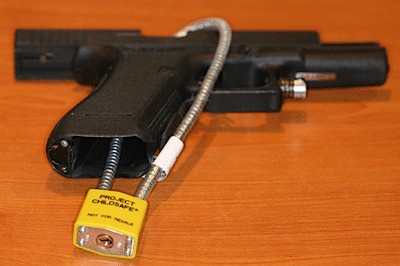Bad news for all of us.
Although it does not directly impact Pennsylvania Law Abiding Gunowner’s, the program attorneys here at www.USLSPA.com were closely monitoring Jackson v. City and County of San Francisco as it is very important case about the 2nd Amendment.
Technically, the case was denied certiorari by the Supreme Court of the United States after it had been re-listed a record breaking 6 times.
What does that mean?
- It does not change any of the laws here in Pennsylvania.
- It does not mean that you have to lock up your handgun when it is not on your person (unless you live in the city and county of San Fransisco).
- It also does not mean that the Supreme Court of the United States expressly condones or allows for the gun control scheme in place in the city and county of San Fransisco.
What it does mean is that despite the clear language in District of Columbia v. Heller, 554 U.S. 570 (2008), there simply were not enough votes (we needed 4 justices out of the 9) to get the case reviewed or enough votes to gather a “GVR” as was advocated (GVR means SCOTUS “grants certiorari,” “vacates” the decision below, and Remands the case).
From the SCOTUSBlog write up:
Raising significant new questions about how much protection the Constitution’s Second Amendment actually gives to gun owners, the Supreme Court on Monday left intact a local ordinance that restricts access to guns even within one’s own home. The denial of review drew a fervent dissent from two Justices, who argued that the Court is narrowing the amendment’s “right to keep and bear arms.”
…
Under the city-county ordinance at issue, a handgun in the home could be carried on the body of the person, but otherwise had to be stored in a locked container or else disabled with a trigger lock. The right to carry a handgun within the home was restricted to those over the age of eighteen. Lower federal courts had upheld those restrictions, despite gun-owners’ claims that the ordinance directly contradicted the access that the Court supposedly had assured in the Heller decision. The main rationale for upholding the ordinance was the need to prevent gun-related accidents within the home. Six San Franciscans who own guns, and want easy access to them in their homes, asked the Supreme Court to strike down the local law. Their plea argued that the lower courts’ rulings were “perhaps the most direct repudiation of this Court’s holding in Heller since the decision was handed down.” That was the plea that the Court chose to bypass, over a dissent by Justice Clarence Thomas that was joined by Justice Antonin Scalia, the author of the majority opinion in the Heller case. The rulings upholding the San Francisco ordinance are “in serious tension with Heller,” the dissenters argued. The Court should have granted review, they contended, “to reiterate that courts may not engage in . . . judicial assessment as to the severity of the burden imposed on core Second Amendment rights.”
Here is the entire text of the dissenters: http://www.supremecourt.gov/opinions/14pdf/14-704_jiel.pdf
“Self-defense is a basic right” and “the central component” of the Second Amendment’s guarantee of an individual’s right to keep and bear arms. McDonald v. Chicago, 561 U. S. 742, 767 (2010) (emphasis deleted). Less than a decade ago, we explained that an ordinance requiring firearms in the home to be kept inoperable, without an exception for self-defense, conflicted with the Second Amendment because it “ma[de] it impossible for citizens to use [their firearms] for the core lawful purpose of self- defense.” District of Columbia v. Heller, 554 U. S. 570, 630 (2008). Despite the clarity with which we described the Second Amendment’s core protection for the right of self-defense, lower courts, including the ones here, have failed to protect it. Because Second Amendment rights are no less protected by our Constitution than other rights enumerated in that document, I would have granted this petition.
…
We warned in Heller that “[a] constitutional guarantee subject to future judges’ assessments of its usefulness is no constitutional guarantee at all.” 554 U. S. , at 634. The Court of Appeals in this case recognized that San Francisco’s law burdened the core component of the Second Amendment guarantee, yet upheld the law. Because of the importance of the constitutional right at stake and the questionable nature of the Court of Appeals’ judgment, I would have granted a writ of certiorari.

